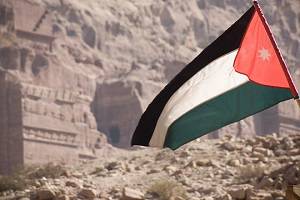Jordanian challenges on internal an external levels
Luglio 1, 2018

Amer Al Sabaileh
Director of Security Languages - Senior political and security analyst
Jordan is facing a pivotal moment where serious decisions based on conviction need to be taken in order to make much needed changes. Monarchical systems need to read the mood of the citizenry, which makes it even more integral to undertake evaluation and revise domestic policies and set a vision to lead the country into the future. This is how confidence and trust in leadership is fostered and nurtured, and when the direction is not leading to outcomes, there is an expectation that a new direction is set.
A successful balance requires a comprehensive understanding of the purpose of change, a reviewing of previous policies which did not lead to the desired outcomes and finding the best path towards success. This can be applied to everything from reducing corruption and spreading power and influence down to the masses with greater inclusion, especially amongst the youth. Jordanians are looking for strong leadership, a clear long-term vision, strong decision making and the determination to implement and learn along the way in order to achieve those outcomes.
Hope is in short supply at the moment. People are seeking change, which must come from the setting of a new direction with new policies and strategies from our leaders. Only this will restore hope amongst the frustrated citizenry and the disaffected youth who are seeking opportunities for their future. A clear vision, and effective implementation also requires clear communication in order for everyone to understand the approach and to recruit citizens to join in the plan and work together to achieve it.
Local development is desperately needed, and food security plans should be at the top of the political agenda. Several countries have been applying new techniques and programs around food security to great success. Jordan should be seeking that expertise, based on mutual economy interest, from Europe and even Russia. Transport and infrastructure planning that connects Jordan internally and externally are key, as the prosperity of the future in the region will be based on cross-border development projects and Jordan has a key strategic advantage to leverage these ambitious long-term plans.
Jordan must also review its foreign policy strategies as the last few years have not been successful in promoting Jordan’s interests. While the situation with Syria has made this extremely complex and delicate, there has been a very conservative approach which has avoided pursuing any opportunities in order to avoid taking any risks. The shared border with Syria could be an advantage rather than a disadvantage, and while national security should always be the highest priority, there must also be a longer-term view which takes consideration of the fact that Syria needs rebuilding and given our geography, these is an opportunity for Jordan to play a key role or as an international hub for those efforts. Similar opportunities exist with Iraq, so restoring those relations should be a high priority as well.
Jordan’s relationship with Saudi Arabia must also be developed based on a strategic approach with closer military and security ties so that the Jordanian Army and the GID can build their relationship based on mutual strategic interest. The focus of the relationship for years has been on attracting Saudi investment and aid, and yet the opportunity to progress to closer military ties will strengthen the political and financial ties in order to become a strategic regional ally.
Reviewing and revising policies at all levels are a healthy sign for the Kingdom and it should be done in context with a national security plan which considers the social and economic challenges as well as the security risks which Jordan faces today.
Dr. Amer Al Sabaileh
What's Your Reaction?
Excited
0
Happy
0
In Love
0
Not Sure
0
Silly
0
Amer Al Sabaileh
Director of Security Languages - Senior political and security analyst
